Vertical HD (1080×1920), colour/audio, 12’00”, 2022
“Who would’ve thought
the end of the world
would look like mowed lawns,
a holiday to Greece,
or a new pair of jeans?”
– the reviewer

The entire film can be viewed here.
Please watch it full screen and use headphones or speakers.
“Where are the goddamned operas?”
– Bill McKibben, What the warming world needs now is art, sweet art, Grist, 2005.
NGMI stands for ‘not gonna make it’. The abbreviation is often used to describe potentially bad financial investments, but in the case of this eclectic short experimental digital animation, it describes my post-pandemic sentiment of disappointment about our collective behaviour in the face of the climatological and ecological system crisis.
NGMI is a collection of reflections on our current situation, rather than a coherent narrative. The film contains many references to ‘Summoning a Forest’, using digital space to produce speculative fiction as a way to process the emotional dimensions of living through global ecosystem breakdown. Absurd times require absurd responses.
All animation and audio is done by me. Exceptions: the Google flight in the ‘telephone’ chapter was recorded in Google Earth studio, the bird alarm calls (downloaded at vogelgeluiden.nl, mixed by me), the video of the ‘metaverse’ chapter was recorded in a 3D social media app (IMVU), and at the end a NASA image is used.
Installation
NGMI premiered in my solo show of the same name at Collectie De.Groen in Arnhem (NL) in 2022. It was projected on a freestanding monolithic surface, with custom printed bean bags for the audience to comfortably sit on.
In memory of Peter Jordaan (1954-2025), half of De.Groen.
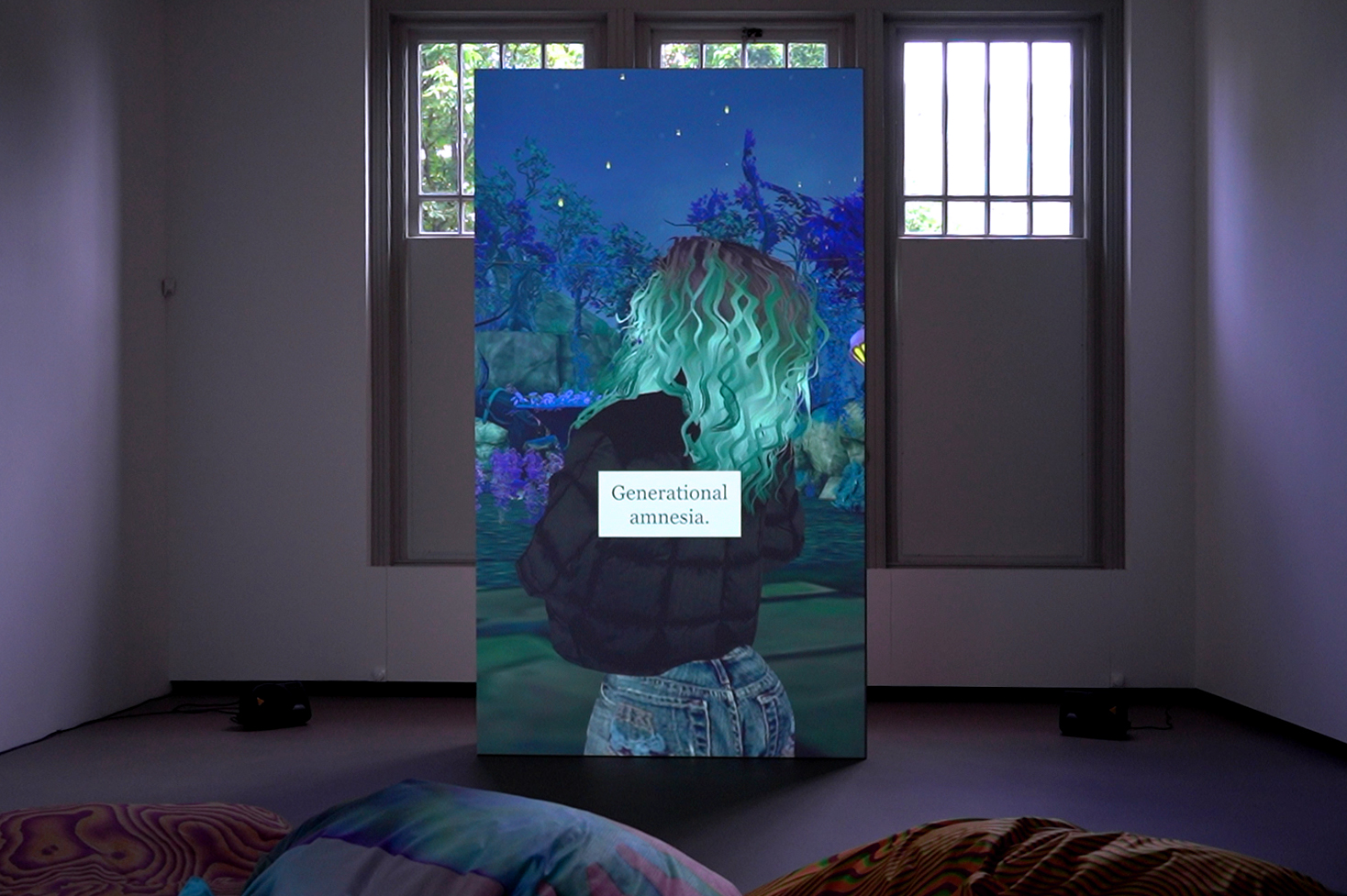
NGMI is a sequel to Mistakes. The artist talk.
Mistakes was made during the first pandemic lockdown of Spring 2020, as an acute response to the extraordinary circumstances at the time.
NGMI is a lament that expresses post-pandemic sentiments, mainly of disappointment. The pandemic was an opportunity to implement large-scale and necessary measures to benefit the health of the planet. Instead, society’s desire to return to ‘normal’ has prevailed and change has been stalled.
Both films process the emotional experience of ecosystem collapse through chapters that alternate between information, absurdity and speculation. Mistakes and NGMI also notably include ‘me’ as a narrator, in the form of avatars and superimposed text. Music is prominent in both films, contributing to Bill McKibben’s call for more crisis-aware art: “Where are the goddamn operas?”
“what a fascinating film–i’ve never seen anything quite like it. i’m very glad to have played a small part in inspiring it!”
– Bill McKibben, January 2023.
NGMI: An Anthem for the End of the World as We Know It
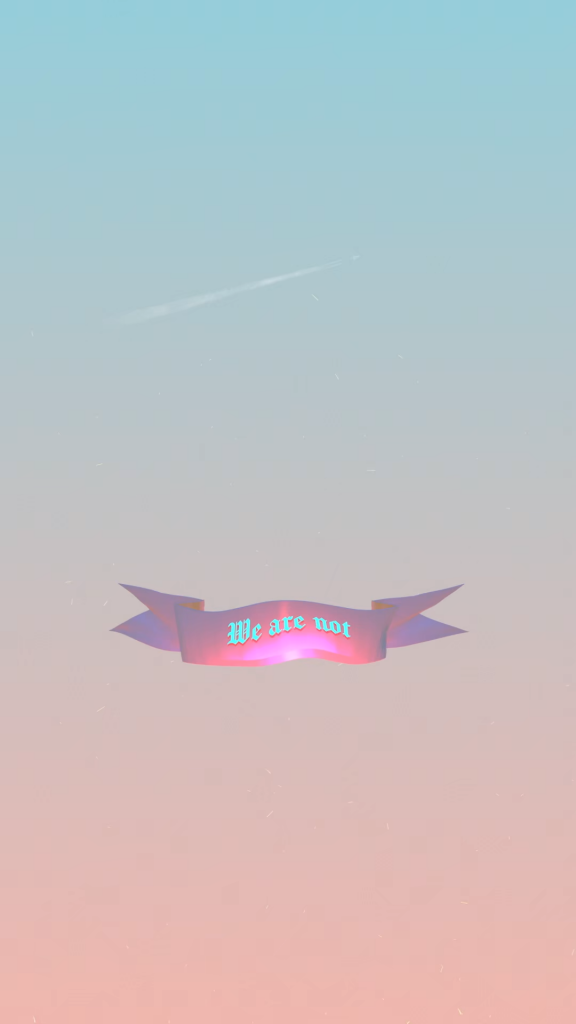
Grief
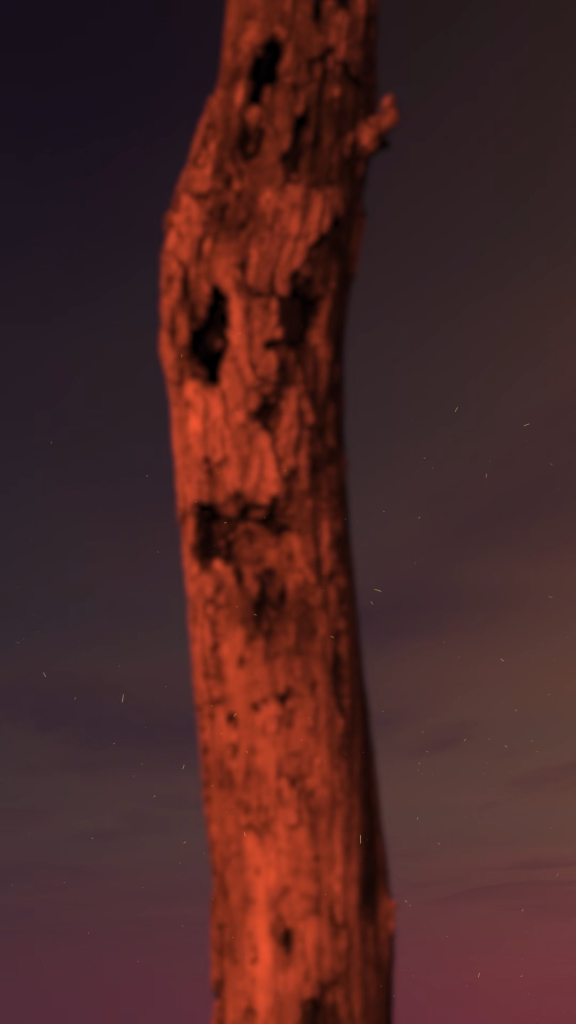
Long Distance Call
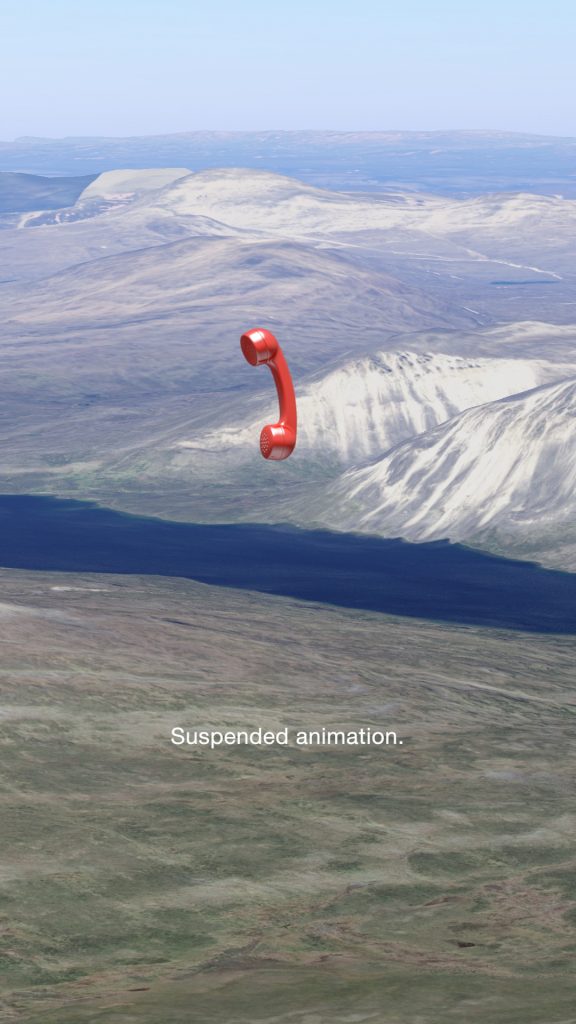
The Review
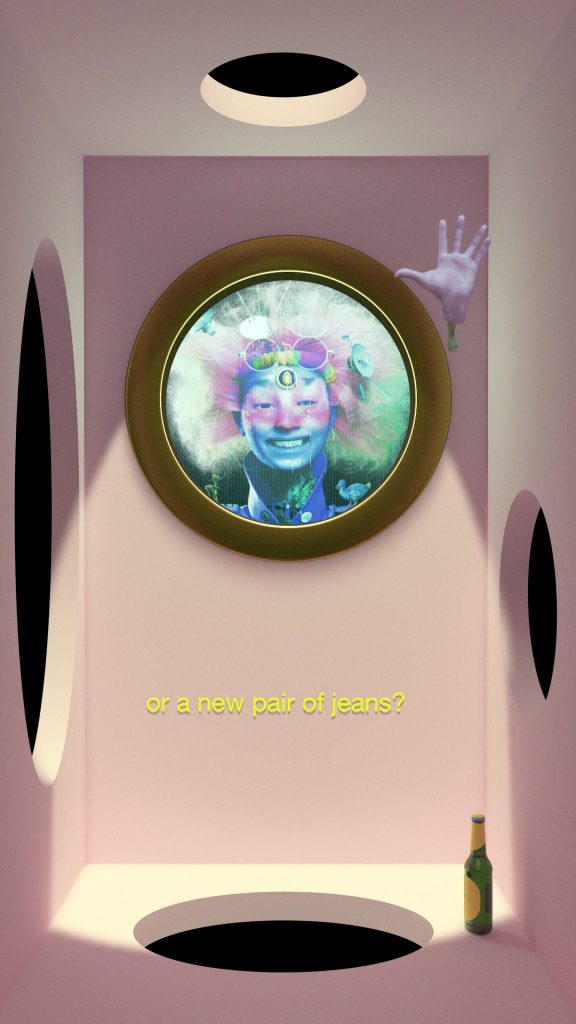
Cognitive Dissonance & Denial
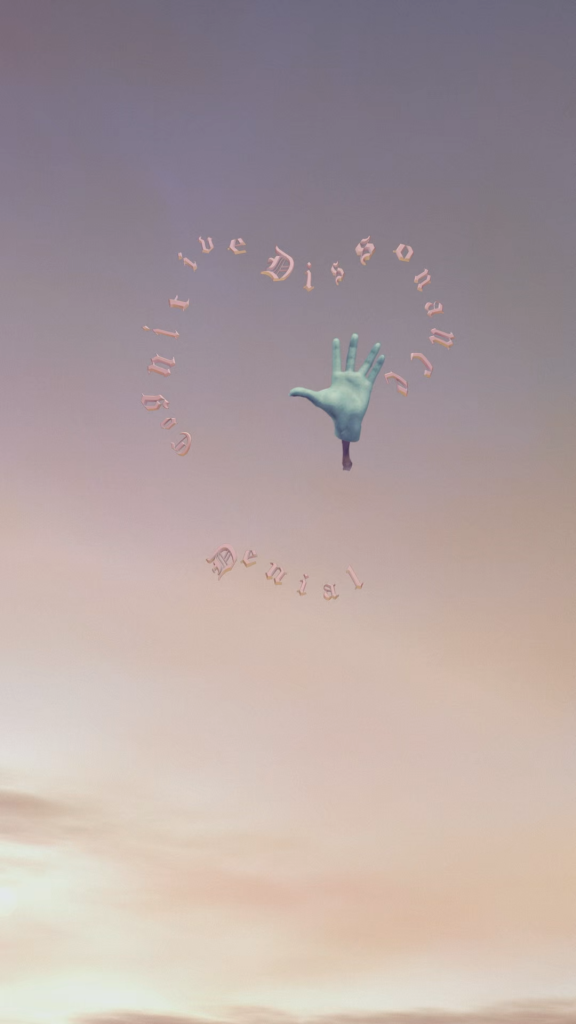
They told us the Metaverse would be so. much. fun. (Generational amnesia)
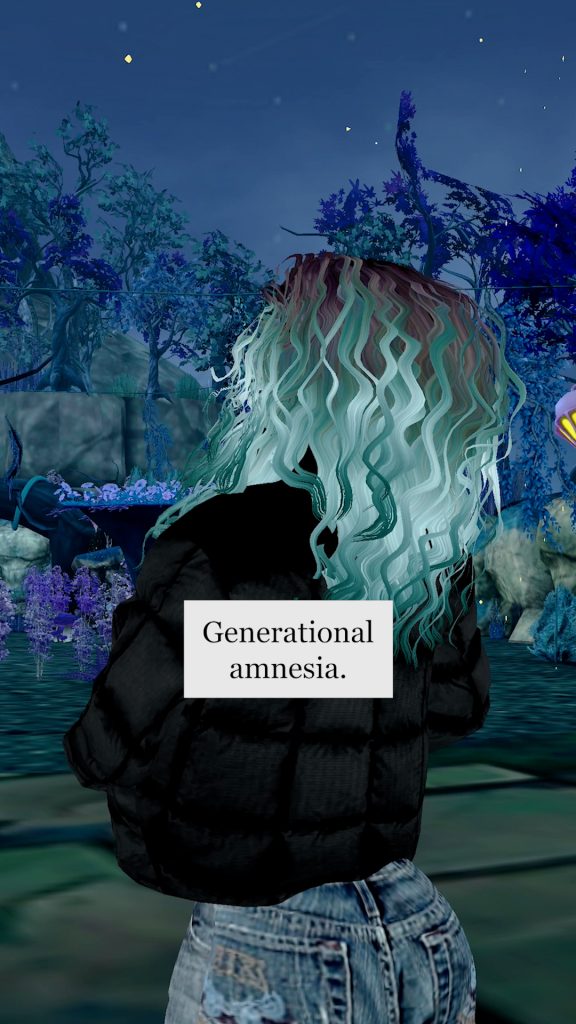
New Mythologies
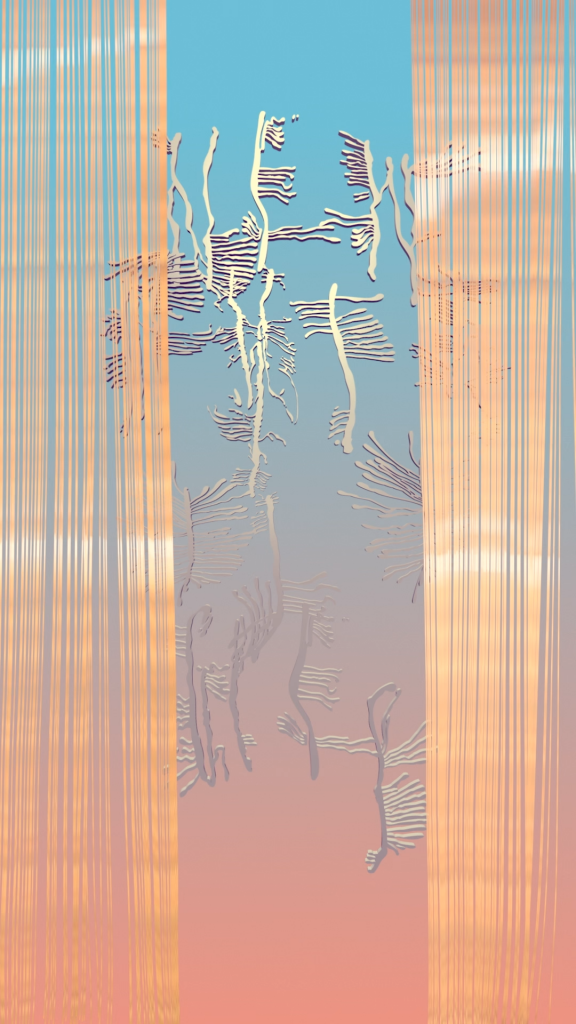
Call again
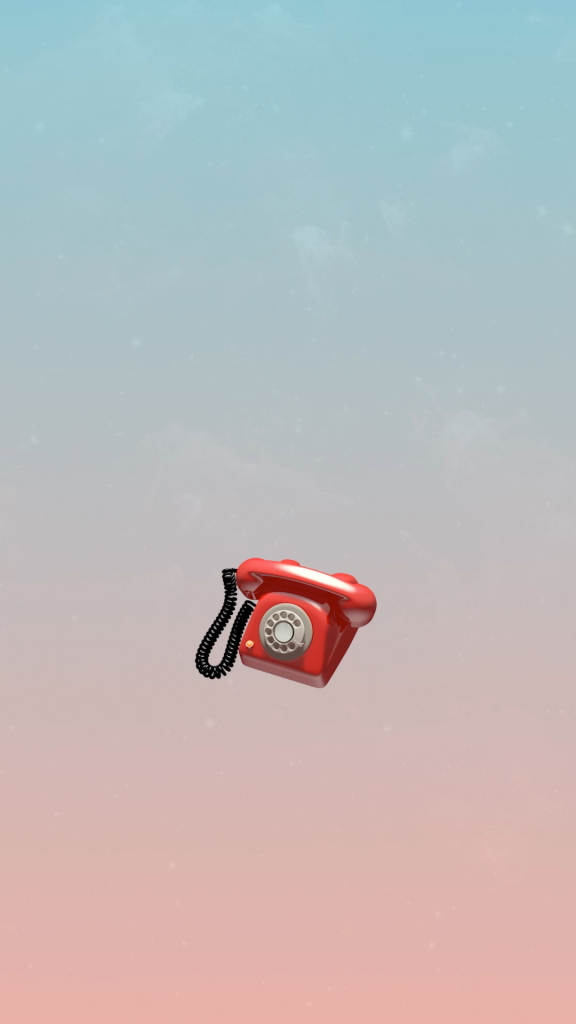
Not going to make it: Processing post-pandemic sentiments in relation to the ecological and climatological crisis.
My work has revolved around apocalyptic and post-human scenarios for years: my 1998 art school graduate paper already shows signs of what is now recognized as ‘eco-anxiety’. In the context of my doctoral research, I use a former forest destroyed by a climate-induced bark beetle infestation as a lens through which to view these larger issues.
Six months after the clearing of the forest and the beginning of my artistic doctoral research, a global pandemic broke out. The connection between the demise of the forest and the upheaval of a virus was abundantly clear: both resulted from relentless human intervention in natural ecosystems. But where the clear-cut forest has slowly but surely begun to heal itself after the shock of the disappearance of the trees, our society has missed the opportunity to heal the planet that the pandemic offered. Instead, deforestation, oil drilling and overall emissions are at an all-time high.
The effects of climate change and biodegradation are shattering all models and projections. It will take many, many generations to regenerate what is being lost now, if there is anything left.
Writer Amitav Ghosh describes our predicament as not just an ecological crisis, but a crisis of the imagination. It seems that politics, industry and even the general public have lost the ability to imagine different futures and alternative ways of organising society, blocking the path to urgent change.
As an artist working with speculative, post-human scenarios for over two decades, my work has long been informed by knowledge from fields such as evolutionary biology, archaeology and palaeoanthropology. It has influenced my perception of time and helps to put current events – and current human behaviour – into perspective: things really can be different.
The often misunderstood genre of science fiction has a role to play here.
As artist Kelly Richardson puts it: “What science fiction does brilliantly is it allows us to experience what life might be like, and so I use it to suggest potential futures should we continue down our current trajectory of planetary pillaging and consumption. It allows people to experience that future and in doing so provides a window through which they can look back on our current time, our current priorities with some measure of hindsight and clarity.”
Some chapters of Mistakes. The Artist Talk and NGMI take place in a virtual space I have come to think of as the ‘Garden of Forking Paths’ – a reference to the 1941 short story of the same name by Jorge Luis Borges. It is an early example of non-linearity, often associated with later scientific concepts such as multiverse quantum leaps or the technological innovation of hyperlinked text. Borges’s garden is not a physical garden, but a hypothetical novel that potentially follows every possible plot line of a suspense story. I use the ‘garden’ as a liminal space, a non-location between spaces, a multi-dimensional crossroads where all options are open but urgent decisions must be made.
I picked up the acronym NGMI while venturing into the world of non-fungible tokens and blockchain, where crypto-investor jargon is sometimes used ironically. The opposite of NGMI is WAGMI: ‘we’re all gonna make it’.

